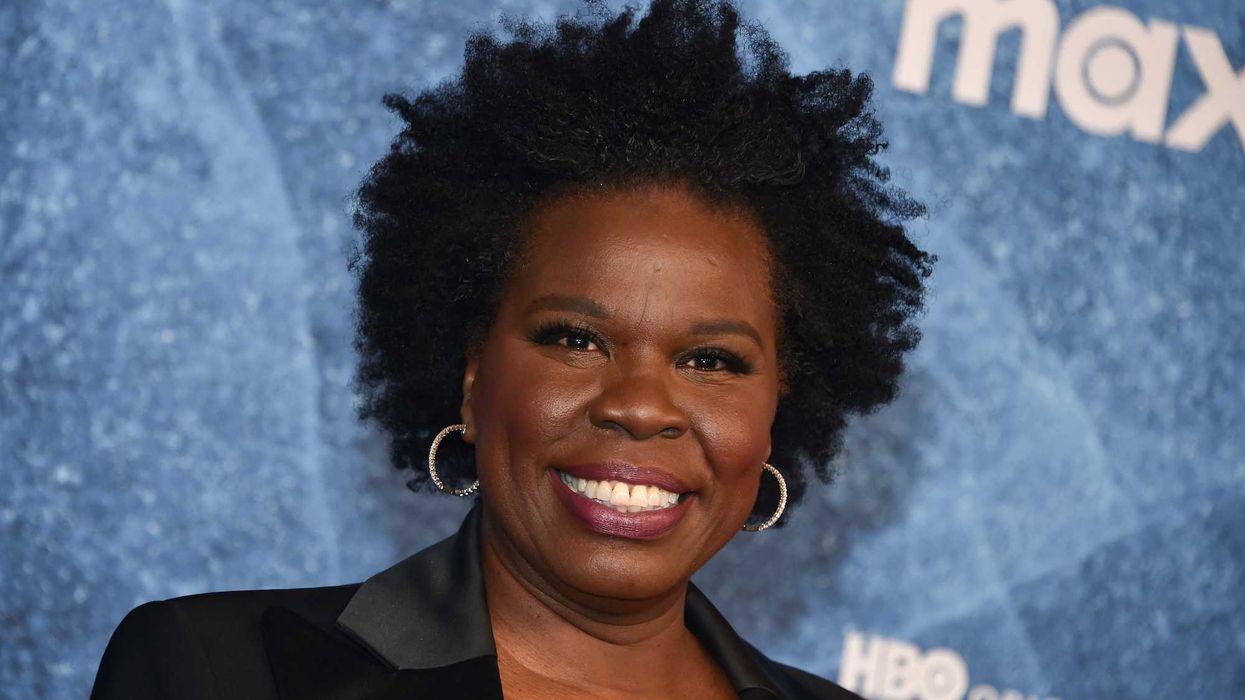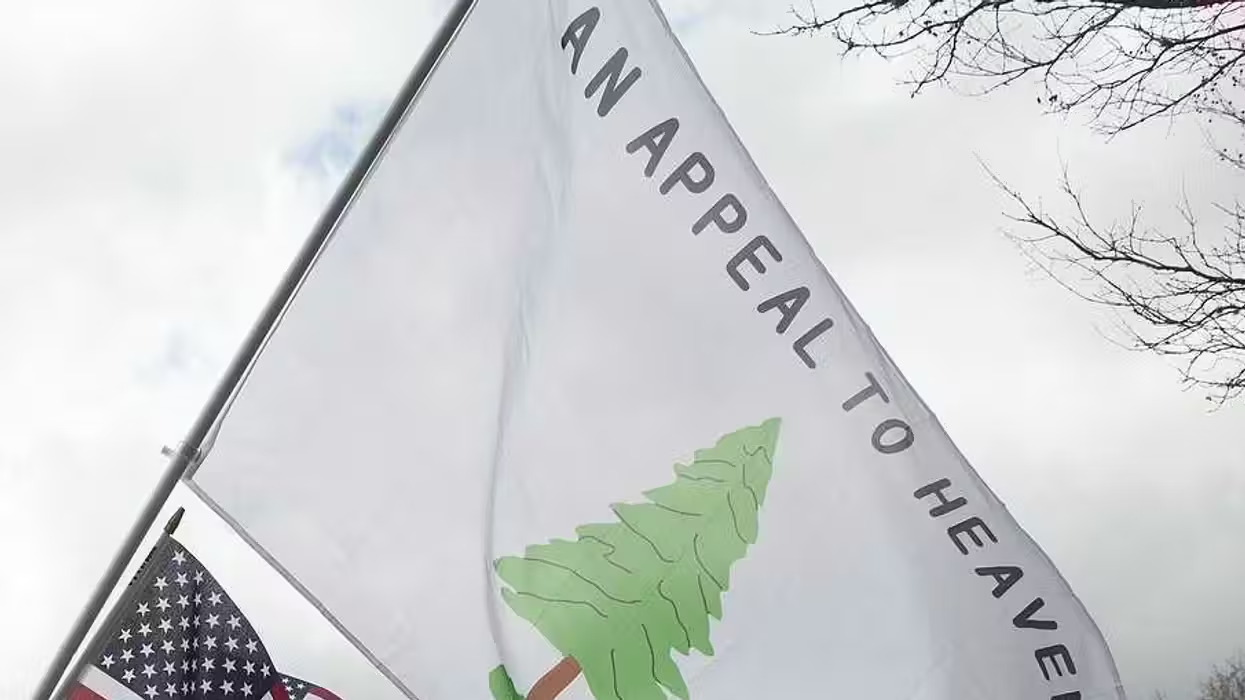
© 2025 Blaze Media LLC. All rights reserved.
Why this author concludes liberalism must either become a cult or question its very essence
January 14, 2015
A profound moral quandary at the heart of liberalism
William Voegeli's new book, "The Pity Party: A Mean-Spirited Diatribe Against Liberal Compassion," systematically debunks the notion that the compassion professed by liberals is actually compassionate, showing the ideology's logical incoherence and innate hypocrisy on its own terms, and examining the devastating effect on those supposedly being helped.
In the below excerpt on public education, Voegeli finds a profound moral quandary in liberalism that leads him to a staggering conclusion. For more on "The Pity Party," we have included our interview with the Claremont Review of Books senior editor as well.
In stopping short of advocating the abolition of any alternative to public education both [Allison] Benedikt [who argues that you are a bad person if you send your children to private school] and [Matt] Yglesias are squishes compared to John Cook (who happens to be Benedikt’s husband), a proponent of "forcibly transferring ownership of all existing private schools to the school district in which they reside." Though his prescription is the most radical, Cook’s diagnosis is the same: "Wealthy people tend to lobby effectively for their interests, and if their interests were to include adequate public funding for the schools their children attend, and libraries, and air-conditioning, those goals could likely be achieved without having to resort to unpleasant things like teachers’ strikes." Cook has not, thus far, extended this logic to conscripting millionaires to live in public housing projects. "Radical inequality" may be "OK for adults," he allows, but when it comes to children, it’s perverse to dole out educations based on arbitrary circumstances completely beyond their control.Thus does twenty-first-century liberalism reconcile, in a manner very different from eighteenth-century liberalism, private interests and the public welfare. The old civic architecture arranged for ambition to counteract ambition, thereby supplying the defect of better motives. The new civic architecture fuses ambitions. The defect of better motives is to be overcome by condemning or prohibiting practices through which people seek to advance the interests of their own families, unless those actions are of a sort that advances the interests of all families similarly situated.
Even when parents try to do what Kristof and Benedikt consider the right thing, however, this regrettable penchant to care especially for one’s own children keeps posing problems. New York City’s Public School 163, on Manhattan’s Upper West Side, offers both General Education and Gifted and Talented programs to its students, pre-kindergarten through the fifth grade. Of the 652 students enrolled in 2013, according to the New York Times, some 63 percent are black and Hispanic, 27 percent are white, and 6 percent are Asian. Of the 205 children in gifted classes, however, 47 percent are white, 15 percent are Asian, and 32 percent are black and Hispanic. By contrast, only 18 percent of the 447 students in the school’s other classes are white.51
Those Upper West Side parents with fond memories of Lester Maddox may be untroubled by such disparities, but they’re a source of distress to others. One P.S. 163 teacher told the Times that "there’s no way I’d put my kid in a general-education class here, no way, because it’s right next to the project and all the kids in general education come from the projects." In her experience, "many of the children in her general education classes were at grade level or below and did not get the same support from their parents that the children in the gifted classes got. ‘They’re tougher kids,’ she said of the general education students in the school."
According to the Times, "several parents and teachers wondered whether white parents would stay if not for the gifted classes." One parent, who "requested anonymity for fear of reprisals," said, "I don’t see any white families coming to register their children for general education. They come straight to gifted and talented." Another parent, who also "did not want to be identified for fear of animosity from other parents," explained the selection of P.S. 163 and its advanced program:
I guess it is a question of, "How much diversity do you feel comfortable with?" Do I want him to be the only white kid in an all-black school? No. Would I like it if the racial mix was more proportionate? Yes, whatever the percentage of the makeup. That’s an honest answer, from my soul. Is it hypocritical for parents to say, "We’re sending our kids to public school," but they’re sending them to an all-white gifted and talented program? But it’s not our fault. We want the best for our children.
Are you a bad person—not murderer bad, but still worthy of loathing and self-loathing bad—if you send your children to a public school, but then maneuver to get them into one of its academically challenging but demographically disproportionate programs? Wouldn’t truly compassionate parents insist that all students not only go to public schools but receive the same education there, even if it meant their own children would study with tougher kids from the projects reading at grade level or below? A political persuasion that leads those who endorse it to apologize—anonymously, for fear of reprisal—about wanting the best for their children has two options. It can either become a cult that demands its members devote themselves to self-abnegation, or reassess whether the reconciliation of interest and duty it has formulated is either as morally compelling or as realistic as its adherents have long supposed.
From THE PITY PARTY by William Voegeli Copyright © 2014 by William Voegeli. Reprinted courtesy of Broadside Books, an imprint of HarperCollins Publishers.
--
Note: The link to the book in this post will give you an option to elect to donate a percentage of the proceeds from the sale to a charity of your choice. Mercury One, the charity founded by TheBlaze’s Glenn Beck, is one of the options. Donations to Mercury One go towards efforts such as disaster relief, support for education, support for Israel and support for veterans and our military. You can read more about Amazon Smile and Mercury One here.
–
Follow Ben Weingarten (@bhweingarten) and TheBlazeBooks on Twitter and Facebook.
You can find all of our Blaze Books interviews on Soundcloud and Stitcher, and subscribe to our podcast automatically via iTunes.
Want to leave a tip?
We answer to you. Help keep our content free of advertisers and big tech censorship by leaving a tip today.
Want to join the conversation?
Already a subscriber?
Ben Weingarten is a writer, commentator, and editor at large at RealClearInvestigations. He is a senior contributor at the Federalist and writes columns for Newsweek and the Epoch Times.
Ben Weingarten
Ben Weingarten is a writer, commentator, and editor at large at RealClearInvestigations. He is a senior contributor at the Federalist and writes columns for Newsweek and the Epoch Times.
more stories
Sign up for the Blaze newsletter
By signing up, you agree to our Privacy Policy and Terms of Use, and agree to receive content that may sometimes include advertisements. You may opt out at any time.
Related Content
© 2025 Blaze Media LLC. All rights reserved.
Get the stories that matter most delivered directly to your inbox.
By signing up, you agree to our Privacy Policy and Terms of Use, and agree to receive content that may sometimes include advertisements. You may opt out at any time.






